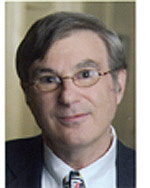Einstein’s Jewish Science: Physics at the Intersection of Politics and Religion by Steven Gimbel; Johns Hopkins University Press, Baltimore, Maryland; ISBN 978-1-4214-0554-4 ©2012, $24.95, p. 245, including endnotes, bibliography, and index
By Fred Reiss, Ed.D.

WINCHESTER, California — In 1922, a year after winning the Nobel Prize in physics for what we know today as the photoelectric effect, Albert Einstein wrote to the French Philosophical Society saying, “If my theory of relativity is proven successful, Germany will claim me as a German and France will declare that I am a citizen of the world. Should my theory prove untrue, France will say that I am German and Germany will declare that I am a Jew.” By 1923, two different astronomical measurements (one in 1919 and one in 1922) of starlight diffracting around the sun due to the sun’s gravity, during total solar eclipses in different parts of the world, validated Einstein’s theory of relativity. In the wake of this success Germany not only declared Einstein a Jew, but insisted that the mathematics and symbolic logic on which the theory of relativity rests is part of a “Jew science,” which had to be removed from German culture.
Steven Gimbel, a member of the faculty and chairman of the Department of Philosophy at Gettysburg College, in his newest book Einstein’s Jewish Science, provides a fascinating look at the interweaving of German politics and science during the Nazi regime. He begins by asking and answering four questions. The first question: “Is Einstein a Jew?” This is a seemingly innocuous question, but an important one. After all, the Nazis were zealots when it came to defining and discovering who is a Jew. Even Himmler boasted, “I say who is a Jew.” Gimbel assures us that Einstein is a Jew from every point of view.
The second question is “What is Jewish science?” and if there is such a thing as Jewish science, (question three) “Can the theory of relativity fall into that classification?” According to Gimbel, science is Jewish when “it is influenced in significant ways by, makes inexorable reference to, or is derived from Hebraic beliefs or traditions.”
Judaism, as with all the major religions, begins by declaring the premise that God exists. Scientists driven by religious dogma provide arguments and explanations that creatively prove God’s existence. Secular scientists, on the other hand, begin with observations, and then employ reason and experimentations. Conclusions are drawn from the data, not preconceived beliefs. As for Einstein, there is no personal God.
Gimbel is least successful in answering his fourth question: “How come it was a Jew who discovered the theory of relativity?” The author, grasping for straws, provides a convoluted explanation, resorting to something he calls a “Christian-style of thinking” and a “Jewish-style of thinking.” Although Einstein might have been a Jew by birth, his parents never exposed him to Judaism, and in fact, he attended a Catholic school for part of his elementary school education. It seems that there is very little, if any, relationship between Judaism, being Jewish, and the discovery of relativity. What is important here is that the Nazis, perceiving a connection, fiercely acted against Einstein and his “Jewish” science.
For much of the book, Gimbel digresses into many interesting scientific, historical, and philosophical areas, effectively conveying stories and anecdotes about the interactions and personalities who made up both Western science and the Arian Science Movement, a cultural purge removing Jewish professors from universities and eliminating abstract analysis from German science. Gimbel also explores the friendship between Jewish philosopher Martin Buber, who supported a Jewish Renaissance that rejects empiricism in favor of mysticism, and Einstein, a deist at best, certainly an empiricist, and their joint efforts and effect on the Zionist Movement and the establishment of the state of Israel.
Reaching back into the first half of the twentieth century, Gimbel returns with absorbing stories about Albert Einstein and his life as a politician, brilliant scientist, and Jew.
*
Dr. Fred Reiss is a retired public and Hebrew school teacher and administrator. He is the author of The Standard Guide to the Jewish and Civil Calendars; Sepher Yetzira, the Book that Started Kabbalah, Revealed; and Reclaiming the Messiah. The author can be reached at fred.reiss@sdjewishworld.com.